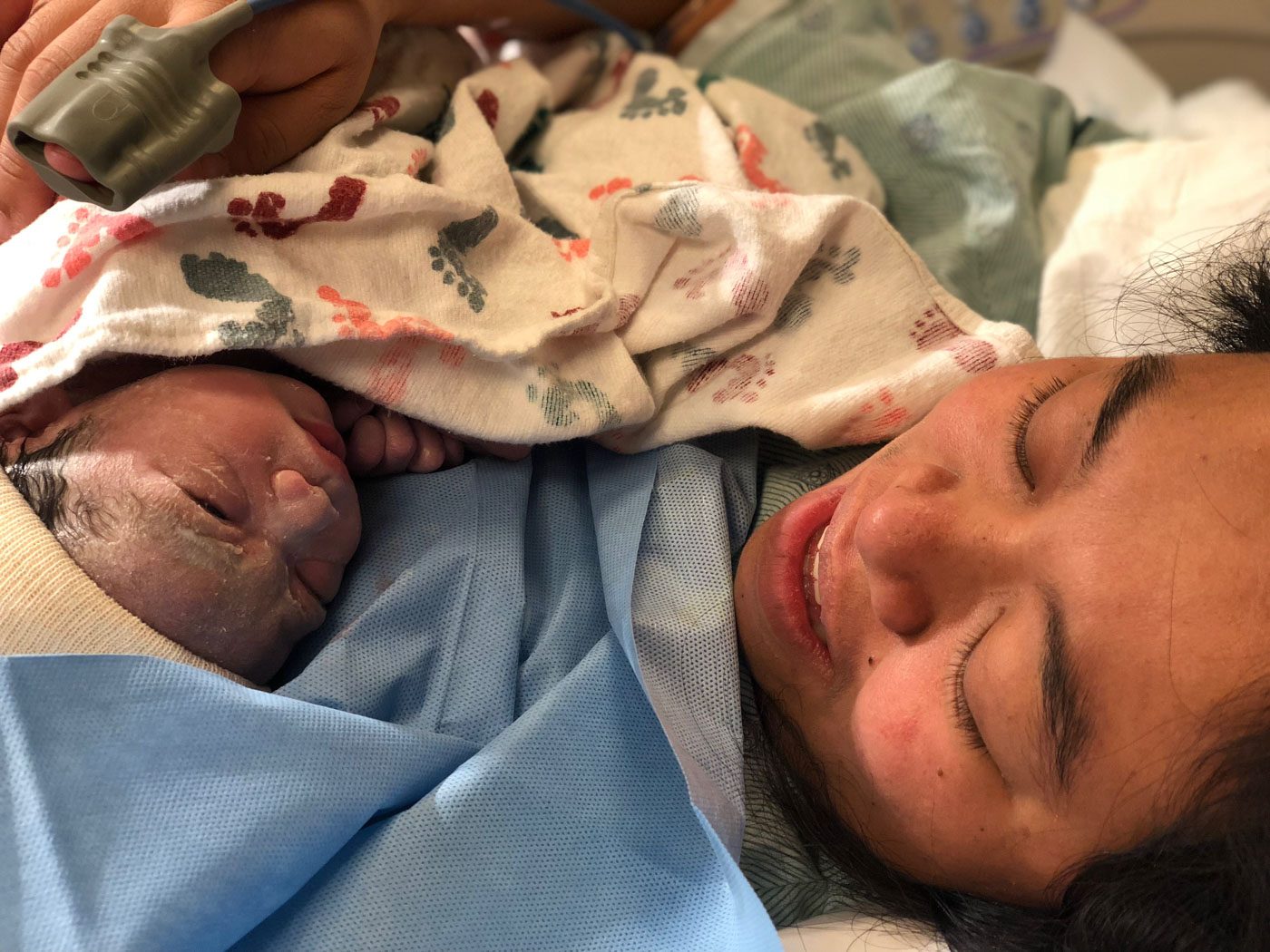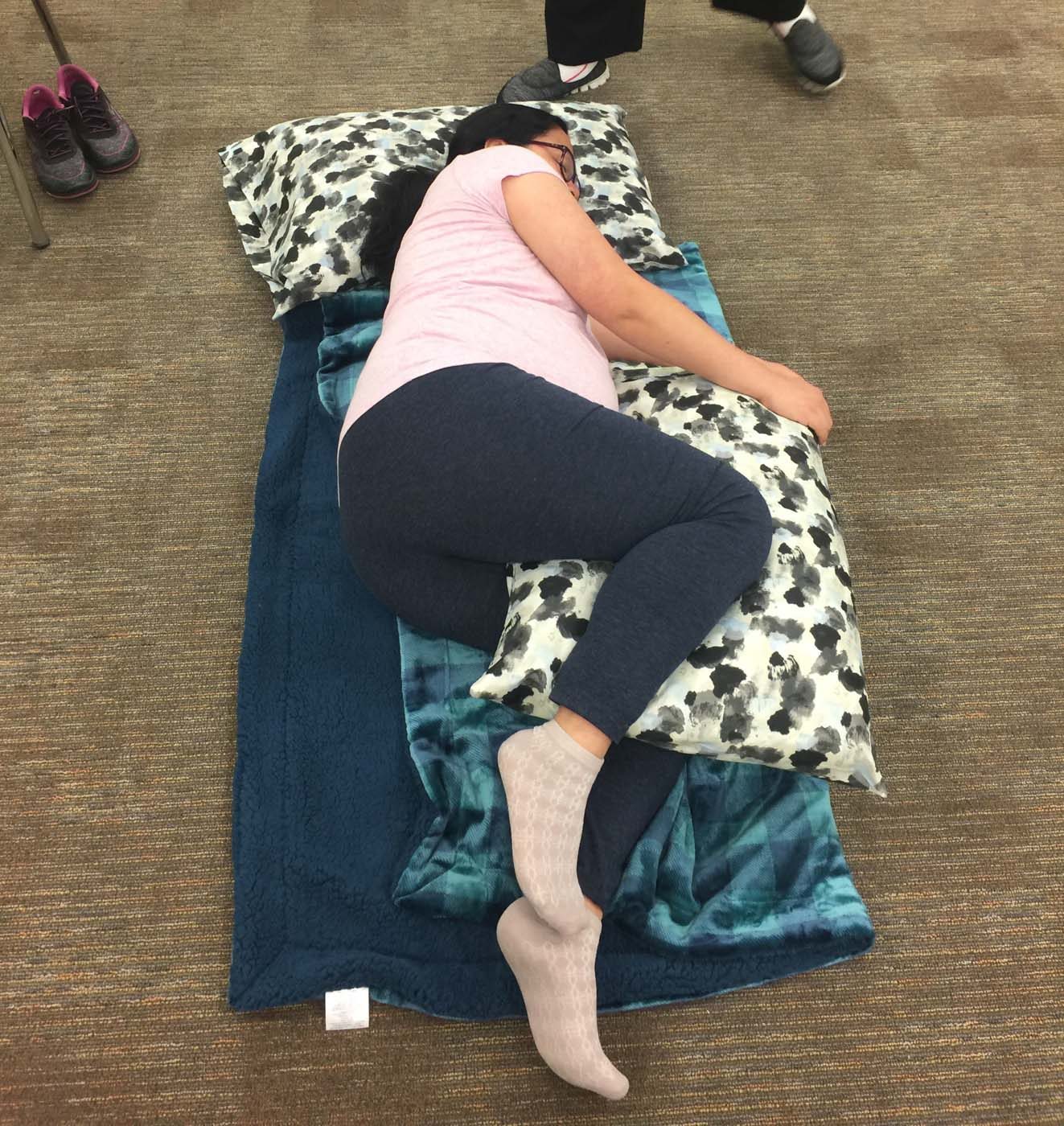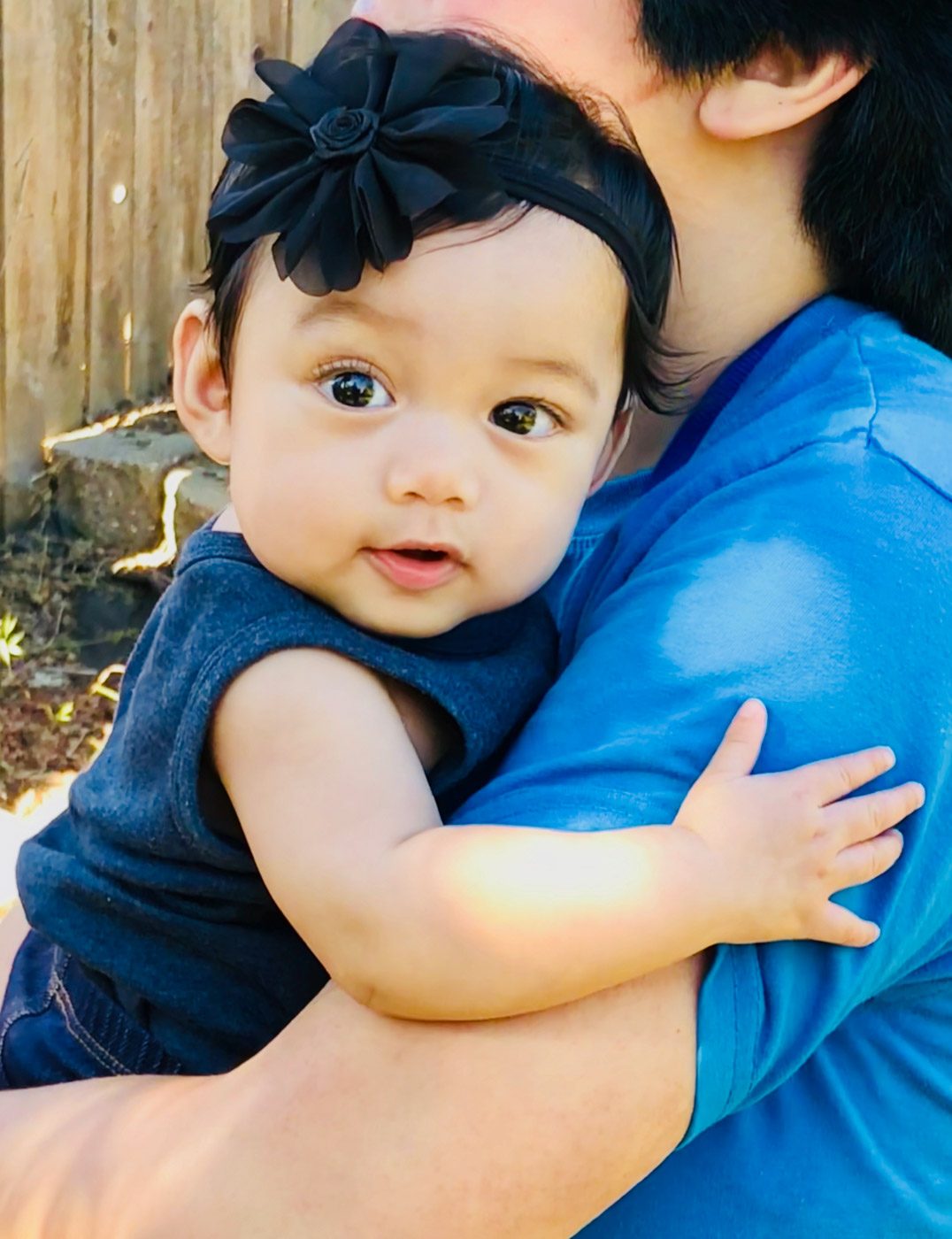SUMMARY
This is AI generated summarization, which may have errors. For context, always refer to the full article.

Having a little one is a wonderful blessing for every couple. The idea of carrying a tiny human being for about 9 months is just fascinating. You imagine the day when you can finally meet your baby, cuddle for all eternity, and give her only the best the world can offer.
But having a baby isn’t just about fun and unlimited cuddles – there’s more to it! A lot more, actually.
For one, it all starts with preparation and a lot of planning. Are we physically prepared for it? Do we have the resources we need to take care of her? We both work, so is there someone we can tap to help with our baby from time to time? Am I ready to become a parent soon and the responsibility that comes with it? And the list goes on.
Almost a year before getting pregnant, we consulted our family doctor to seek advice. In particular, we wanted to know tips that would help us have a healthy pregnancy. One of them, obviously, included maintaining a healthy lifestyle.
We had to watch the food we take, exercise more, and avoid stress as much as possible. Taking pre-natal vitamins and fish oil for the mom was also recommended.
We read books, particularly related to pregnancy, parenting, etc., just so we had a general idea of what to expect as we make the transition from being a couple to parenthood.
Our world suddenly changed when the pregnancy test kit revealed that small red line. Finally, we were having a baby!
But soon after the joy and excitement, came the reality that we would soon be parents, responsible for this little one. It was no longer just the two of us.
We maintained a healthy lifestyle and continued to follow our doctor’s advice. And when the time to deliver our baby came up, we made sure we’re ready on all fronts, including the “go bag” that has our entire stuff in it ready to be picked up anytime.
Our lives have since changed unbelievably with the inclusion of Raya in our family.
Whether you’re planning to have a baby right away, or are thinking about being a parent in the future, good preparation really pays off.
Here are a few pointers to help you out based on our own experiences:

Find a healthcare provider that you can trust. It’s generally easy to find an OB-GYN or similar provider nowadays, but whether he or she is the right one for you is another question.
Remember that you are going to work with this doctor for the next couple of months or even years, and will take care of you and your baby as you travel the path of parenthood.
Having a good relationship with your doctor, and knowing that you can ask all the questions you want, is important.
Stay healthy during pregnancy. Early days are very important, especially with the brain and heart development of the baby. It is essential to maintain good health all throughout the pregnancy. Do the tests regularly. Urine and blood tests are very common during regular check-ups. Blood sugar test is also conducted to identify conditions, such as gestational diabetes.
If there’s a resource constraint, check with your local health center if they offer some of these checkups and services for free.
Our doctor advised us to have flu and TDAP vaccines (both parents) before delivery. Please check with your doctor to know what’s best for your situation.

Prepare a birth plan. Preparing a birth plan before delivery and discussing it with your doctor is crucial. A birth plan is a document that lets your medical team know your preferences – from delivery method, labor pain medication, and even how you prefer to cut the umbilical cord.
Having a plan while maintaining flexibility will allow you to decide on a number of things on the Big Day. It will also help you become familiar with hospital policies that you have to consider during your stay.
Prepare a “go bag” with essential stuff months before your due date – babies could arrive earlier than expected. Choose your pediatrician before giving birth and if possible, interview the doctor. In choosing our pediatrician, we considered the recommendation of our doctor.
We requested our doctor to have the father (Mark) cut Raya’s umbilical cord. We also checked the hospital’s policy regarding picture and video taking during the delivery. In our case, our OB-GYN allowed us to take photos and videos during the actual childbirth.
Attend a childbirth class. If there’s one offered in your community or suggested by doctor, please consider attending.
Childbirth class provides essential knowledge that you will need as you prepare for your labor and delivery, breastfeeding and even postpartum. It is also highly recommended that both parents attend the class so they both know their roles and responsibilities, and know what to expect.
While work schedules may not allow parents to attend this type of class, class providers offer flexibility nowadays, such as offering on weekends for multiple sessions, even for free.

We both attended the childbirth classes offered by the hospital where our doctor is affiliated. These were offered on 4 consecutive Saturdays for about two hours every session.
The classes, led by a childbirth consultant, covered topics related to pregnancy, labor and delivery, breastfeeding, postpartum, and even exercises for moms and babies. We truly enjoyed every session, along with other participants. We learned a lot, especially about some of the misconceptions on pregnancy, labor, and delivery.
Schedule the postpartum checkups. Sometimes, new parents forget to have follow-up checkups with their doctors after the delivery or they think it’s no longer important. Schedule and have the postpartum OB-GYN and pediatrician checkups as soon as possible.
These will help the new mother monitor her healing, as well as the development of the baby. Postpartum blues and depression are real so watch out for the signs. Work as a team and support each other.
Be prepared physically and mentally. Okay, so the baby is finally here. She (or he) is uber cute and looks like her father. But hey, nobody told me about not-so-cute parts. I didn’t sign up for this!
Be prepared to lose a lot of sleep. The first 3 months or so is going to be the hardest. In our experience, we felt almost all the emotions available out there. We were joyful and inspired, but also had our fair share of frustrations and worries. We already knew that we would have sleepless nights, but we didn’t realize how hard it was until it happened.
We didn’t have anyone helping us out with Raya, so it was just the two of us. We learned to support each other and came up with a game plan that worked for the both of us.
For instance, since Raya’s dad (Mark) works and her mom (Ana) is a full-time homemaker, mom takes care of her during the weekdays, especially at night time, while dad takes over during the weekends.

Don’t hesitate to ask for help. For first-time parents, things can get unnerving at times. The baby cries continually for no reason at all. The poop’s color and viscosity is different from yesterday. My baby’s head is plagued with cradle cap.
I am so devastated and lost, but thank God there’s mom and Google!
It’s okay to ask for help and do your research. For new parents, it’s an exciting journey and learning experience.
Reach out to your parents and elders you trust, or friends with babies too. Perhaps they can share some tips and tricks based on their experiences.
However, make sure to stay in touch with your healthcare providers and consult them with any medical issues or concerns, as they are more qualified to provide advice and recommendations based on your baby’s situation.
Don’t compare your baby to others. You can’t stop adoring your little one, how cute she is and how she’s been showing milestones ahead of her age. You think your baby is a genius in the making, or so you thought.
Enter: A fellow moms’ baby posts on Facebook and Instagram – suddenly, you start feeling envious. Why is her baby looking so smart and healthy, while mine is always fussy and sickly?

Every baby is different, and each one reaches milestones at his or her own pace. Checking out someone else’s baby, especially if he or she is the same age group as yours, can help you gauge how you baby fares compared others in terms of growth and milestone development.
But excessively comparing your baby to the point that you her to do things she just can’t yet has repercussions. Not only is this unfair to your baby, but it also creates health issues. Continuing to do so years later will have negative consequences on her well-being.
The journey to parenthood becomes even more exciting and colorful with the inclusion of another little one, and maybe even more little ones down the road.
The nights are long, and are physically and mentally draining most of the time, but seeing your little angel smile, release that ear-piercing screech, and start saying “Tatay” or “Nanay” make it all worth it.
Besides, time will run swiftly and before you know it, the little one won’t be so little anymore. – Rappler.com
First-time parents Mark and Ana live in California, USA, along with Raya, who is now at 6 months.
Add a comment
How does this make you feel?
There are no comments yet. Add your comment to start the conversation.